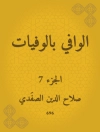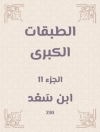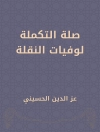Thomas Arnold’s ‘The Christian Life: Its Course, Its Hindrances, and Its Helps’ is a profound exploration of the spiritual journey of individuals striving to live a Christian life. Written in a reflective style that marries theological depth with practical guidance, Arnold examines the various obstacles believers face and the divine assists available to them. He synthesizes insights from scripture, personal experience, and pastoral wisdom, providing a rich tapestry that underscores the complexities of faith amidst societal challenges prevalent during the 19th century, a period marked by industrialization and moral questioning. As a prominent educator and theologian, Thomas Arnold’s convictions were deeply rooted in the Christian traditions of his time, drawing upon his experiences as headmaster of Rugby School and his advocacy for moral integrity. His dedication to the moral and spiritual development of young minds informs his work, instilling it with a palpable urgency and relevance. Arnold’s commitment to bringing faith into daily living reflects both his personal convictions and the broader Victorian movement towards practical Christianity. For readers seeking a thoughtful examination of faith’s journey, ‘The Christian Life’ serves as an invaluable resource. Its candid assessment of hindrances coupled with practical helps renders it essential for anyone wishing to deepen their understanding of Christian living. Arnold’s insights resonate with contemporary struggles, making this book a timeless guide for spiritual seekers.
เกี่ยวกับผู้แต่ง
Thomas Arnold (1795–1842) was a renowned British educator and historian, widely recognized for his significant contributions to the field of education and for his role as a school headmaster. Not to be confused with his son, the poet Matthew Arnold, Thomas Arnold was an influential figure in his own right, particularly known for his tenure as the headmaster of Rugby School from 1828 until his death. During his time at Rugby, Arnold implemented educational reforms that emphasized moral and Christian values alongside academics, which influenced public school education throughout Britain. His work as an educator is intricately linked with his scholarly pursuits, which have left a lasting impact through his writings.
Arnold’s book ‘The Christian Life: Its Course, Its Hindrances, and Its Helps’ (1841) reflects his views on religion and moral development—themes central to his pedagogy. In this book, Arnold discusses the practical aspects of living a Christian life, stressing the importance of truthful living, the role of discipline, and the influence of society on personal virtue. His literary style combines a scholarly approach with a pastoral concern, aimed at guiding individuals towards moral and spiritual improvement. Arnold’s contribution to educational theory and Christian thought continues to be recognized, and his writings offer valuable insights into early Victorian perspectives on education, religion, and society.












